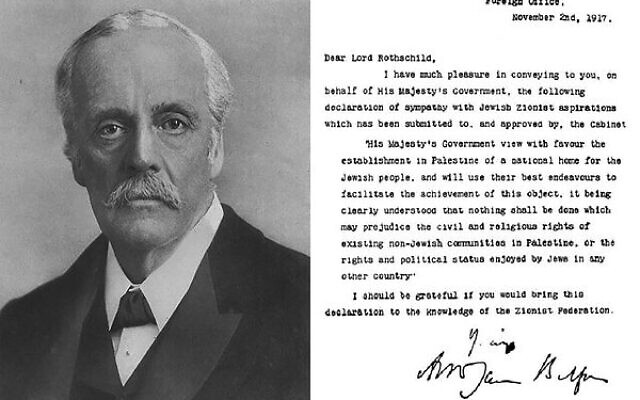105 years ago this week
'The history of the Jewish people might have been very, very different'
“We were all at the gallop yelling like mad, some had bayonets in their hand, others their rifle. Then it was a full stretch gallop at the trenches … The last 200 yards or so was good going and those horses put on pace and next were jumping the trenches with the Turks underneath … When over the trenches we went straight for the town.” (Private Walter Mundell Keddie).
A crane driver from Sydney, Walter Keddie left Sydney on board the HMAT Suevic on June 13, 1915. A member of the 12th Light Horse, he would not return to Australia until September 8, 1919, more than four years later.
Many of his mates from the Light Horse would not return at all, however. Among them, 31 who fell 105 years ago this week on October 31, 1917, when Australian troops defeated the Ottoman forces at Beersheba.
Remembered as the last great cavalry charge, the battle was not just significant historically for that reason.
It was pivotal in driving the Ottomans out of Palestine, paving the way for the British Mandate charged with establishing a Jewish homeland in the former Turkish-held territory.
Indeed, it was just two days later – 105 years ago this week – on November 2, 1917, that British foreign secretary Arthur Balfour wrote to Lord Lionel Walter Rothschild “the following declaration of sympathy with Jewish Zionist aspirations which has been submitted to, and approved by, the cabinet”.
Balfour asked the communal leader to inform the Zionist Federation that “His Majesty’s government view with favour the establishment in Palestine of a national home for the Jewish people, and will use their best endeavours to facilitate the achievement of this object, it being clearly understood that nothing shall be done which may prejudice the civil and religious rights of existing non-Jewish communities in Palestine, or the rights and political status enjoyed by Jews in any other country.”
Despite their clear commitment, successive British governments would, in fact, do very little to “facilitate the achievement of this object”, hindering Jewish immigration that could have saved countless lives in the horrific decades that followed, and even abstaining 75 years ago this month in November 1947, when the United Nations came to vote on the establishment of that Jewish homeland which it had committed itself to.
A sidenote – 75 years on, in just the past couple of weeks, here in Australia, much to our community’s profound regret and deep disappointment, we have seen our own government reverse a key position on Israel, namely recognition of west Jerusalem as the Jewish State’s capital.
But that is a matter of distress that has been covered at length in these pages in previous weeks, and not the focal point of this article which, by contrast, honours and celebrates the historical ties between our two countries, bonds forged on the battlefield of Beersheba, which despite some tensions along the way, have endured ever since.
Indeed, 30 years after the Light Horse charge, it was Australia’s Herbert Vere ‘Doc’ Evatt, who brought the partition proposal that would create Israel to the floor of the UN in November 1947, and it was Australia that cast the very first vote in its favour.
But without those horsemen who charged at Beersheba – many of them incidentally Indigenous – and without the sacrifice of those 31 who laid down their lives to capture the city, the history of the Jewish people might have been very, very different. We are in their debt and, as both Australians and as Jews, we honour them.
As for the Balfour Declaration, 105 years on with Israel having just gone to the polls, and presumably at the time of publication still trying to form a government, one phrase in particular deserves consideration: “nothing shall be done which may prejudice the civil and religious rights of existing non-Jewish communities in Palestine”.
The declaration does not refer to “Palestinians” but to “existing non-Jewish communities”, because at that time there was no concept of a distinct, identifiable Palestinian people, let alone one that ruled over its own land.
But nonetheless, the Balfour Declaration, like Israel’s own Declaration of Independence, still insists that the rights of non-Jews living there must not be prejudiced.
When we hear the language of some politicians and parties seeking to share power in Israel, it behoves us to remember that basic principle underlying both support for the establishment of a Jewish homeland and the actual establishment of that homeland.
Just as we honour the horsemen, like Private Walter Mundell Keddie, who fought 105 years ago this week at Beersheba, so too we must honour the commitment of the Balfour Declaration issued 105 years ago this week to ensure the rights of all who live in the land that the Light Horse helped liberate and that we now call our own.
Zeddy Lawrence is the executive director of Zionism Victoria.


comments